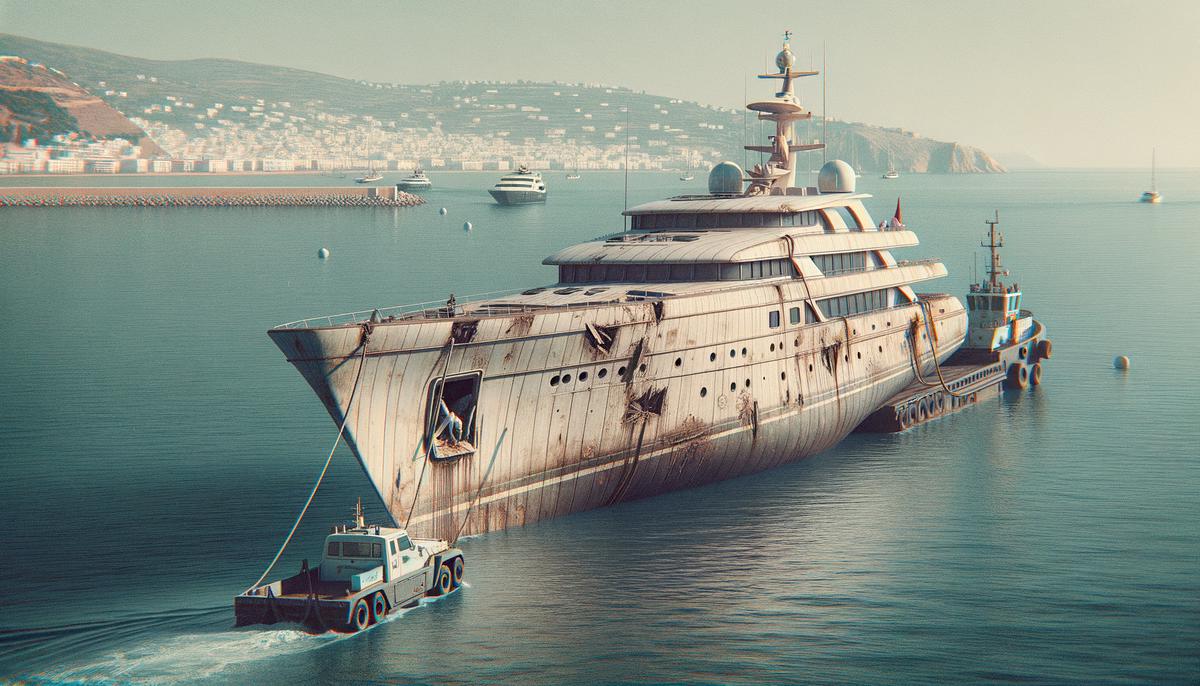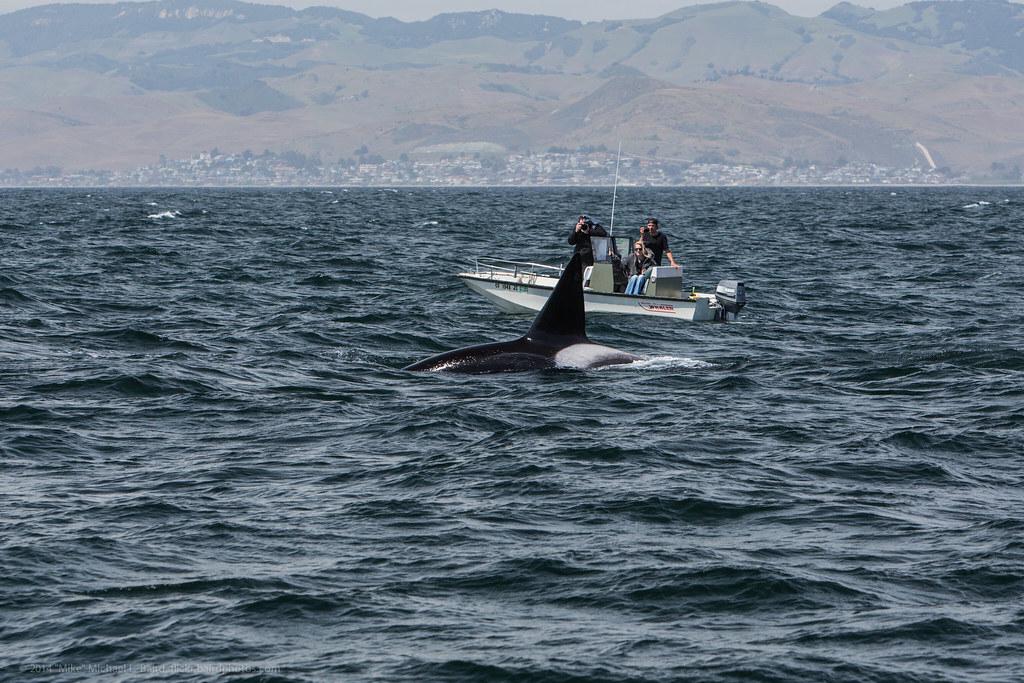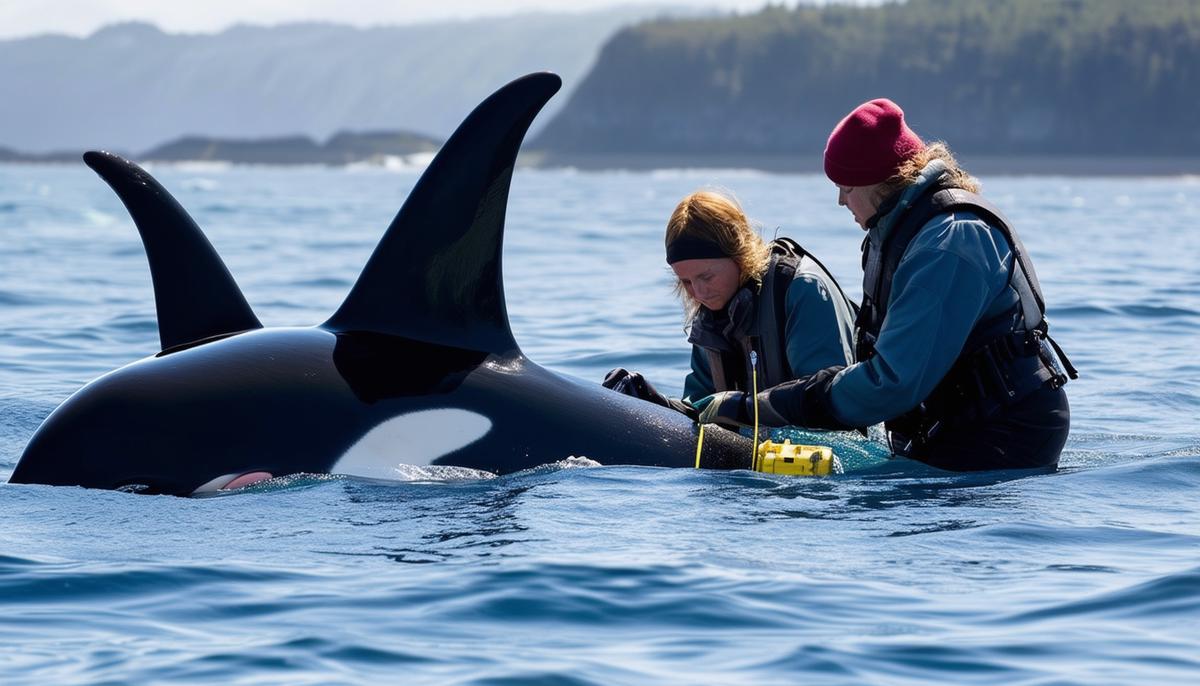Recent Incidents and Patterns
A pod of orcas rammed the Grazie Mamma on October 31st, off the coast of Morocco. The crew felt the boat shudder repeatedly under hits to its rudder. The yacht began to take in water fast. Moroccan Navy assisted in evacuating the crew, but the boat was lost before reaching Tanger-Med port.
This incident wasn't isolated. Data shows alarming growth in these encounters:
- 2020: 52 reports
- 2022: Over 200 reports
The orcas specifically target vessels' rudders, causing substantial damage. They've sunk several boats, with no human casualties yet.
Eyewitnesses claim to have seen orcas teaching each other these tactics. A female named "White Gladis" is supposedly the originator of these attacks. Her actions have now spread to at least 16 known individuals in the same subpopulation. Juveniles and some adult females have joined in these disruptive behaviors.
On April 10, three orcas were seen harassing a yacht off the coast of Malpica in Galicia, hundreds of miles from their typical spring hangout in the Strait of Gibraltar. This deviation has left scientists puzzled.
Predicting these encounters has proven difficult. Alfredo López Fernandez, a biologist from the University of Aveiro, expressed uncertainty over the behavioral shift. More orcas have been spotted further north and east along the Spanish coastline, and even in waters they normally avoid.
Scientists are divided over the reasons behind these actions. Some suggest orcas might be engaged in play or attempting to experience the sensation of the propeller on their faces. Others theorize that these aggressive encounters could be a form of revenge due to past trauma from boats.
An orca attack off Scotland in June 2023 has prompted speculation about whether the behavior is spreading beyond the Iberian subpopulation.
"There is now an ongoing conversation about proper and humane methods to manage these situations."
Early conclusions hint at learned behaviors, possibly a form of cultural fad among the animals. Thirty scientists signed an open letter appealing to the public to not demonize these animals, fearing the consequences of misinterpreted motives.

Theories Behind the Behavior
Several theories have emerged to explain the orcas' perplexing behavior:
- Play: Andrew Trites, a marine mammal expert, proposes that the orcas could be treating the rudders like oversized toys.
- Frustration: Marine biologist Renaud de Stephanis suggests that orcas may enjoy the sensation of moving water propelled by engines.
- Cultural fads: The behavior initiated by "White Gladis" could be a fashionable diversion within this particular pod.
- Revenge: Some scientists contend that prior traumatic encounters with boats could have driven the orcas to retaliate.
Monika Wieland Shields of the Orca Behavior Institute acknowledges that orcas possess the capacity for complex emotions, including revenge, though she doesn't fully subscribe to this theory.
The implications of these theories shape our responses and strategies for coexistence. An empathetic approach contrasts with the human impulse of retaliation. Previous attempts to deter the orcas using firecrackers or firearms have been both ineffective and ethically troubling.
"Over 30 marine scientists have voiced concerns about the narrative surrounding these incidents. They warn against anthropomorphizing orcas as vengeful aggressors – a portrayal that risks inciting fear and hostility among mariners."
As we examine the motivations behind their actions, the challenge lies in redefining our relationship with these wild and intelligent creatures, fostering a safer and more harmonious oceanic coexistence.

Scientific and Expert Opinions
Marine biologists and researchers point to a multifaceted understanding of orca behavior, combining empirical observations with theoretical considerations. Studies show that orcas have an extraordinary capacity for social learning and complex emotional responses.1
Andrew Trites emphasizes that, despite our best efforts, much about these orcas remains enigmatic. "Orcas are incredibly intelligent and highly social animals. Their behavior can sometimes puzzle us, but it often has a rationale rooted in their social structures or environmental interactions," he explains.
Alfredo López Fernandez, from the University of Aveiro, underscores the unpredictability of these encounters. "There is an absolute lack of knowledge about why this is happening," he states, highlighting the scientific community's ongoing challenge to decode the orcas' motives.
Researchers have observed that the Iberian orcas often follow bluefin tuna, their primary prey. Changes in the tuna population or migration patterns could influence orca behavior, including their interaction with boats.2 The sightings of orcas in unexpected regions like Galicia could be linked to these underlying ecological shifts.
A study published in Marine Mammal Science has tracked individual orcas involved in these boat interactions, seeking to map out behavioral patterns and potential triggers. The phenomena appear to originate from a specific subset within the Iberian subpopulation, suggesting a contained yet pervasive behavioral trend.
Deborah Giles of Wild Orca articulates a cautious approach to the revenge theory: "While we can't rule out the possibility of revenge, it is more constructive to explore the behavioral intricacies that guide such actions. These animals operate on a spectrum of intelligence and emotion that we are only beginning to comprehend."
Monika Wieland Shields emphasizes the importance of not projecting human motives onto these animals. "Orcas are capable of complex emotions, but attributing their actions to revenge simplifies a much more nuanced reality. We need to approach these behaviors with open-minded curiosity rather than presumption," she notes.
"We urge the media and public to avoid projecting narratives onto these animals. In the absence of further evidence, people should not assume they understand the animals' motivations."
Danny Groves of Whale and Dolphin Conservation highlights the conservation implications: "These creatures hold a precarious place in our ecosystem. Misinterpreting their actions as malevolent can have catastrophic consequences for their survival."
The scientific endeavor to understand orcas is ongoing, driven by a profound respect for their complexity. As research continues, so too does the need for patience and empathy. By fostering an informed, cautious approach, we not only protect the orcas but also enrich our comprehension of the intricate web of life that our oceans hold.

Impact on Maritime Activities
The ongoing orca encounters have significantly affected maritime activities along the Iberian Peninsula and the Strait of Gibraltar. Yacht operators are grappling with financial and operational consequences. Boats are being damaged, insurance claims are rising, and operators are becoming increasingly cautious about sailing in orca-prone waters.
Economic Impact:
- Increased maritime insurance premiums
- Rising costs of repairs to damaged rudders and hulls
- Altered routes leading to longer journeys and increased fuel consumption
Sailors are adopting a heightened state of vigilance, often altering their routes to avoid known hotspots of orca activity. Some have begun equipping their vessels with additional safety gear and mechanisms to deter orcas, such as sturdier rudders or protective cages around critical parts of the boat.
Maritime authorities have implemented several preventive measures. Guidelines for sailors passing through affected areas now include specific recommendations:
- Maintain minimal engine activity when orcas are sighted
- Avoid sudden movements
- Refrain from attempting to interact with or harm the whales
Authorities have established communication networks to disseminate real-time information about orca sightings and movements. In high-risk areas, patrols and surveillance operations have increased, both to monitor orca activity and to ensure compliance with new safety regulations.
The introduction of "orca-friendly" boating practices is gaining traction. Educational campaigns led by conservation groups and maritime authorities promote awareness about orca behavior and responsible coexistence. Workshops and training sessions for sailors emphasize non-disruptive sailing and the use of non-lethal deterrents.
Implementing and enforcing guidelines requires international coordination among multiple jurisdictions, a task complicated by varying levels of commitment and resources. The intrinsic unpredictability of orca behavior means that even the best-laid preventive measures can sometimes fall short.
Responses from the sailing community reflect a blend of resilience and frustration. The loss of the Grazie Mamma underscored the tangible risks involved, but also highlighted the urgent need for better understanding and innovative solutions.
Preventive measures are continuously evolving, informed by ongoing research and field observations. Collaborative efforts between researchers, maritime authorities, and the sailing community aim to foster coexistence based on mutual respect and understanding.
As we navigate these challenges, the goal remains clear: to forge a path where humans and orcas can share these waters without conflict, respecting the wildness that makes our oceans so profoundly captivating.

Conservation Concerns
The conservation status of the Iberian orca population adds complexity to these maritime encounters. Classified as critically endangered, with fewer than 40 individuals believed to be remaining, every loss within this population carries substantial weight. Understanding and addressing the reasons behind these interactions between orcas and boats must be handled with sensitivity and responsibility.
One of the main risks posed by these encounters is the potential for negative human responses. Reports of sailors using firecrackers or even firearms to deter orcas highlight the possibility of escalating conflict. Such measures not only endanger the animals but also deepen misunderstandings about their behavior.
The attention these incidents draw can reshape public perception of orcas, potentially leading to harmful stigmatization. Just as the film "Jaws" influenced cultural attitudes towards sharks, sensationalist depictions of orca behavior could stoke unnecessary panic and undermine conservation efforts.
Balancing Conservation and Safety
Balancing orca conservation with maritime safety requires a nuanced approach. Conservationists and scientists stress the importance of empathetic and informed engagement with these creatures. The open letter signed by over 30 marine scientists emphasized the need to avoid "projecting stories" onto orcas, advocating for a perspective that values the nuances of their behavior without anthropomorphizing them.
Conservation strategies extend beyond immediate incident responses. They include:
- Efforts to protect the marine environments these orcas inhabit
- Ensuring sustainable fishing practices to maintain their natural food sources
- Implementing pollution control and habitat protection measures
- Strengthened enforcement against illegal fishing practices
Public Awareness and Education
Public awareness and education play a vital role. Conservation organizations work to disseminate factual and compassionate information about these orcas, highlighting their intelligence, social structures, and the true scale of their endangerment. This can foster a more empathetic response from the public and encourage more responsible maritime behaviors.
Scientific Research and International Cooperation
Scientific research is pivotal in this conservation framework. Continuous monitoring and studying of orca populations provide crucial data that can inform protective measures. By tracking individual orcas, observing their interactions, and understanding the ecological factors at play, scientists can offer targeted recommendations to both preserve these creatures and mitigate conflict with human activities.
International cooperation is equally crucial. The maritime territories of Spain, Portugal, and Morocco overlap with the habitats of these orcas. A unified effort that crosses national boundaries can lead to more effective policies and regulations, including coordinated research initiatives and shared conservation strategies.
"Safeguarding these magnificent beings aligns closely with ensuring that the seas remain livelihood-sustaining, biologically rich, and dynamically balanced ecosystems."
The intersection of conservation, science, and maritime activity shapes an ongoing story, where each action taken today affects the fate of the orcas tomorrow. Preserving these orcas is not just a scientific or moral imperative – it's a testament to our broader commitment to protecting the intricate web of life that graces our oceans.

Recognizing the intelligence and emotional depth of orcas is essential. By fostering empathy and understanding, we can approach these interactions with respect and caution, ensuring a harmonious coexistence in our shared marine environment.
Writio: Your AI content writer partner for top-notch articles. This page was crafted by Writio.
Leave a Reply